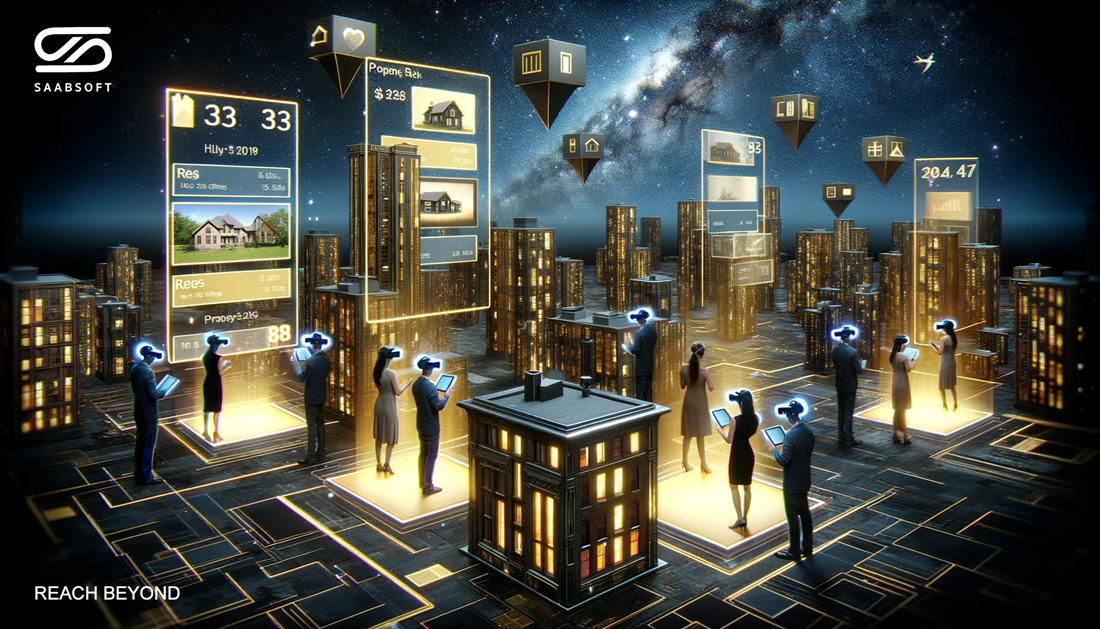Introduction
The real estate industry, known for its dynamic and ever-evolving nature, is currently undergoing a
significant transformation, largely driven by advances in Customer Relationship Management (CRM) technology.
As we look towards the future, it's clear that the role of
CRM in real estate
is not just changing; it's
revolutionizing the way real estate professionals interact with clients and manage their portfolios.
The Rise of AI and Machine Learning
One of the most exciting developments in real estate CRM is the integration of Artificial Intelligence (AI) and Machine Learning (ML). These technologies are empowering CRMs to analyze vast amounts of data, predict trends, and provide actionable insights for real estate agents. From predicting market shifts to personalizing customer interactions, AI and ML are making CRM tools not just analytical but predictive and prescriptive.
Enhanced Customer Experience Through Personalization
The future of real estate CRM lies in personalization. The new age CRMs are designed to offer a tailored experience to each client. By leveraging data on customer preferences, purchase history, and interaction patterns, real estate professionals can create highly personalized marketing campaigns and property suggestions, increasing engagement and customer satisfaction.
Mobile-First Approach
With the world increasingly going mobile, real estate CRM solutions are also adapting. Mobile-first CRM platforms enable agents to access and update client information, manage listings, and communicate with clients on the go, ensuring that they are always connected and responsive.
Integration with Virtual and Augmented Reality
Virtual and Augmented Reality (VR/AR) technologies are set to redefine property showings and listings. Integrated with CRM systems, these technologies can offer virtual tours of properties, helping clients to visualize spaces without physical visits. This integration not only enhances the customer experience but also streamlines the sales process.
Automated Workflows and Efficiency
Automation is key in modern
real estate CRM systems
. Automating routine tasks such as data entry, lead nurturing, and appointment scheduling frees up valuable time for real estate professionals, allowing them to focus on high-value activities like client interaction and closing deals.
Blockchain for Enhanced Security and Transparency
Blockchain technology is emerging as a game-changer in real estate CRM. By enabling secure and transparent transactions, blockchain can streamline property sales and leasing processes, enhance trust, and reduce fraud, making CRM systems more robust and reliable.
Sustainability and Green CRM
As sustainability becomes a global priority, Green CRM is gaining traction in the real estate sector. This approach focuses on environmentally friendly practices, such as digital document management and energy-efficient property suggestions, aligning business operations with eco-conscious values.
Conclusion
The future of
real estate CRM
is not just about technology; it’s about how these technological
advancements are seamlessly integrated to enhance client relationships and operational efficiency.
As we move forward, real estate professionals who embrace these innovations will find themselves at the
forefront of a more connected, efficient, and client-centric industry. The future is here, and it’s
incredibly exciting for the world of real estate CRM.
SAABSOFT
is a leading provider of CRM solutions, specializing in innovative and efficient software
for the real estate industry. With a focus on user-friendly design and state-of-the-art technology,
SAABSOFT continues to redefine the way real estate professionals interact with their CRM systems.
